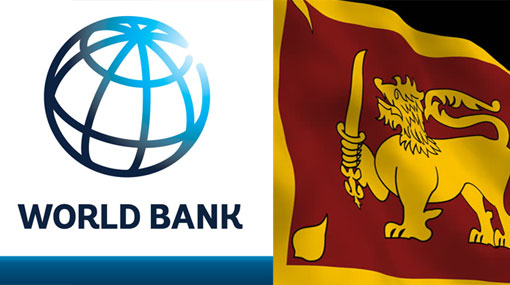Our Terms & Conditions | Our Privacy Policy
World Bank Urges Smarter Spending as Sri Lanka Stabilises Economy
By: Staff Writer
September 11, Colombo (LNW): Sri Lanka has made significant progress in stabilising its economy, undertaking one of the largest and fastest fiscal adjustments in its history, according to a new World Bank report. The diagnostic review, titled Sri Lanka Public Finance Review: Towards a Balanced Fiscal Adjustment, highlights that the country’s fiscal consolidation over the past three years equivalent to nearly 8% of GDP has been sharper and quicker than most international counterparts.
The World Bank noted that Sri Lanka’s adjustment compares favourably with more than 330 similar fiscal consolidation efforts in 123 countries since 1980. The review underscores that the country is now in a position to focus on improving the efficiency and fairness of public finances to benefit all citizens.
While fiscal measures have successfully restored macroeconomic stability, the Bank cautioned that these efforts have also come at a cost. Higher indirect taxes and reduced real public-sector wages have placed pressure on households, while lower public investment has slowed growth. The report calls for a calibrated next phase of fiscal policy that raises revenue without undermining growth or equity and ensures government spending delivers maximum impact.
The review identifies that Sri Lanka could raise revenue by up to 2% of GDP by 2029 through smarter, fairer taxation. Recommendations include shifting toward direct taxes, such as implementing a minimum corporate income tax, and digitising tax administration to simplify compliance and increase transparency.
On the expenditure side, the World Bank emphasises “spending smarter, not more.” The report advises improving the management of public sector wages, safeguarding essential frontline services, simplifying pay structures, and modernising payroll systems. Capital investments should be reprioritised to address infrastructure gaps, ensure ongoing projects are completed faster, and strengthen project management and maintenance practices.
Social protection systems also require reform. The report encourages more targeted assistance, expanding the social registry, and moving away from universal subsidies to direct support for the most vulnerable. Such measures aim to ensure that public resources are spent effectively, delivering tangible benefits to those who need them most.
“Now that Sri Lanka has largely stabilised its economy, the challenge is to get better results from every rupee collected and spent,” said David Sislen, World Bank Division Director for Maldives, Nepal, and Sri Lanka. “Modernising tax administration, focusing on direct taxes, and making public spending both efficient and fair are critical to sustaining stability and promoting inclusive growth.”
The World Bank’s findings signal that while Sri Lanka has successfully navigated an unprecedented fiscal consolidation, the next stage demands smarter policy choices and better governance to ensure the benefits of stability translate into sustainable growth and improved living standards.
Images are for reference only.Images and contents gathered automatic from google or 3rd party sources.All rights on the images and contents are with their legal original owners.



Comments are closed.